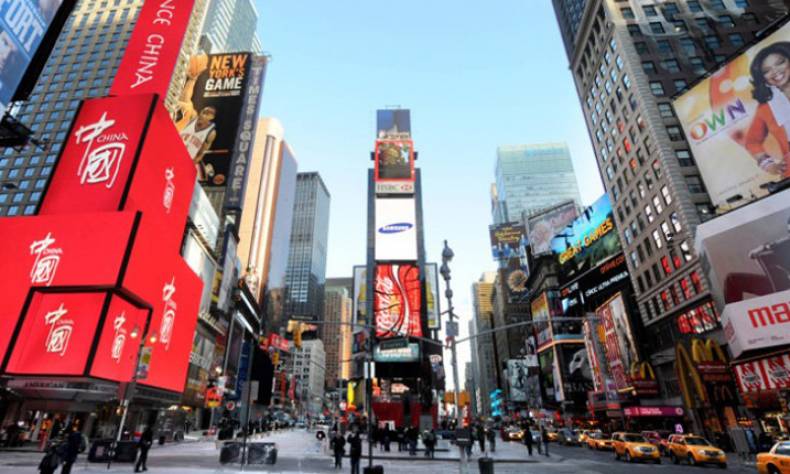
Bridging Americans’ Perception Gap of China
Americans’ perception of China differs significantly between the general public and a cohort of elite opinion leaders. Certainly, it is something neither exceptional for, nor unique to, the United States, as the differences in education, knowledge and experience between the elite group and the general public predetermine that this type of perception gap exists in any major countries in the world. However, the scope, intensity and root causes of this perception gap of China have created a bipolar political environment in the U.S. that overshadows the China-U.S. bilateral relationship.
In general, the elite opinion leaders in the U.S. have a rather up-to-date, pragmatic, and rational view of China. This doesn’t mean that all of them have benign, friendly, and warm-hearted attitudes toward China. Quite the contrary, some of America’s leading experts on China hold very negative, even hostile view of China, and never refrain from voicing their strong opinions. However, compared with American elites’ view of China, general public’s perception of China lags behind the reality by such an unfathomable distance that it is as if these two groups of people come from two paralleled universes. For example, according to the Gallup public opinion polls from 2011 to 2013, for three consecutive years, a majority of Americans (53%) believed, mistakenly, that China is the leading economic power in the world. Similarly, Pew Research Center found in a 2012 survey that 52% of American general public considered “China’s emergence as a world power” as a global threat, whereas only less than one-third of the American experts thought so.
It seems that in the minds of the majority Americans, 95% of whom have never been to China, China still is a Communist monster with a pair of military and economic attacking claws, never holding back its aggressive impulse to bully its neighbors or to harm U.S.’s national interests. For example, in a comparative national survey conducted by American Behavior Research Center in 2014, 44.3% of the American general public believes that China’s political system is “a threat to American democracy”, and 69.6% agrees that the fact that China’s ruling party is a Communist Party pretty much seals their negative perception toward the government. Instead, to the same questions, only 22% and 33% of American elites respectively think that way. Moreover, 48.4% of general public regards China’s spectacular economic growth over the past several decades as “a bad thing to the U.S.” (only 14.5% elite Americans agree), and 31% believes that China’s foreign policy has been driven by the motives to “challenge U.S.’s leadership in the world” (20% for elites).
This perception gap of China wouldn’t be a major problem for the bilateral relationship if the two paralleled images never clash with each other, or do so repeatedly. In fact, every four years, the presidential election cycle in the U.S. has become a frequent “clashing zone” of these two China views. Sadly for both countries, the public version of China always trumps the elite version of China in a presidential debate, and whoever peddles the extreme view of China wins. The latest example warrants more attention for the political experts on both sides of the Pacific Ocean, when the Republican front-runner Donald Trump publicly slapped China as “liars” and “thieves”, “sucking the blood out the U.S.” It is no secret nowadays that “Blaming China” is a political fair game in Washington, D.C. that no politicians want to be left behind. However, scapegoating is no decision-making. Although most U.S. decision-makers are elected by the general public based on the public version of the perception, they have to adjust to the elite view of China on the first day of taking power to manage the most important bilateral relationship in the world. Therein lies two problems, though. First of all, it is not easy to make the haste adjustment. To check out the embarrassment and difficulties of such a maneuver, asking President Bill Clinton in 1993 or President George W. Bush in 2001. Second, China cannot and will not swallow such irresponsible political insults any more. It is intolerable, and it is wrong.
The ultimate solution to this back-and-forth perception syndrome is for Americans to keep up with the sea-changes that occur on the other side of the ocean and adjust accordingly. The luxury of being uninformed no longer applies to the current geopolitical landscape of the world politics. Meanwhile, American media outlets are not innocent in this collective misperception as well. To establish a stable relationship between the largest developing country and the largest developed country, Americans have to, first and foremost, bridge their perception gaps of China.
(The author is Xu Wu, Associate Professor at Walter Cronkite School of Journalism and Mass Communication, Arizona State University)
 Facebook
Facebook
 Twitter
Twitter
 Linkedin
Linkedin
 Google +
Google +











Comments are closed.